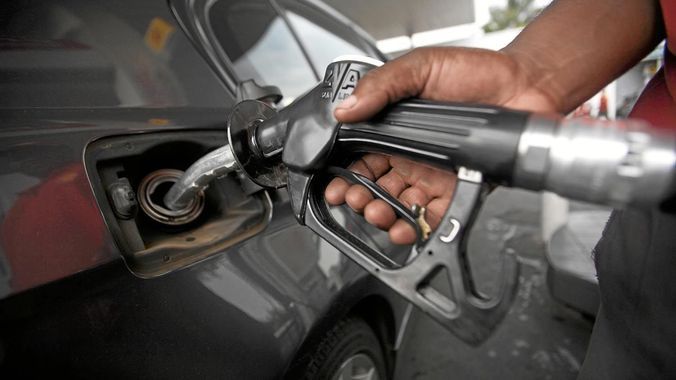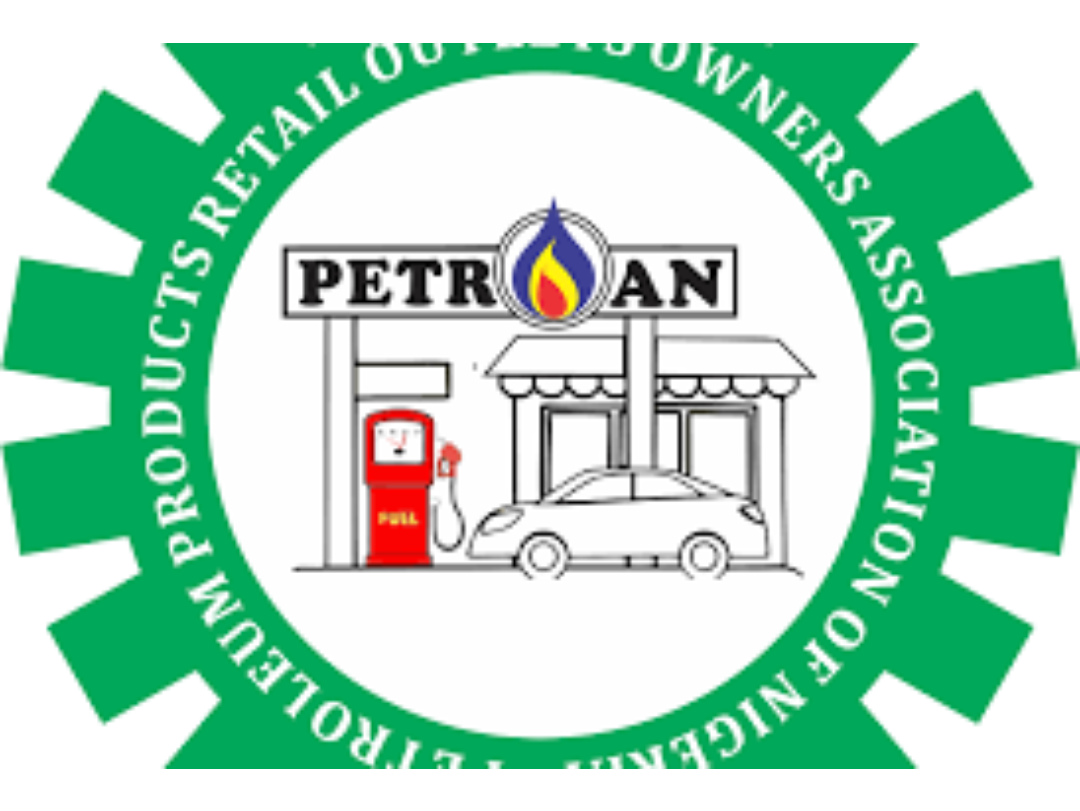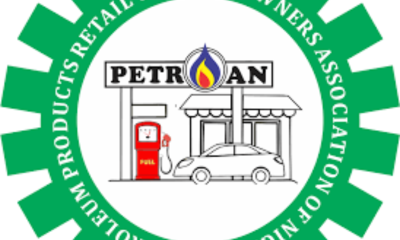BUSINESS
Petrol Subsidy to Cross N300bn Next Month

By Joseph Amah, Abuja
It is projected that Nigeria may spend over N300 billion on petroleum subsidy bill next month as the landing cost of importing fuel skyrocketed amid the Russia-Ukraine crisis. Subsidy or under-recovery is the underpriced sales of premium motor spirit (PMS), better known as petrol.
The global prices of oil climbed above $100 per barrel due to disruption in global supply and potential talks on the ban of Russian oil by the European Union and the United States.
The higher the global oil prices, the more Nigeria will pay to import refined crude products — while the cost of subsidising petrol continues to erode revenue for Africa’s largest oil producer without functional refineries.In 2021, NNPC deducted N1.43 trillion which depleted Federation Account Allocation Committee (FAAC) revenue to N542 billion from a projected N2.51 trillion for the year.In its monthly presentation to the FAAC meeting in February, the Nigerian National Petroleum Company (NNPC) Limited had said it would deduct N242.5 billion from the federation for subsidy at March’s meeting.
The deduction, according to NNPC, includes N143.7 billion for January 2022 recovery outstanding and November spot arrears of N98.8 billion). At the March meeting, NNPC did not remit any money to the FAAC for onward distribution to the federating units –- an action that may cause fiscal stress to state and local governments and cut short developmental projects.
A monthly revenue document by agencies of government confirmed that NNPC did not remit any funds to the federation account in January and in February 2022.Further details showed that value-added tax (VAT) contributed the highest to the federation purse with N177 billion. The Nigerian Upstream Petroleum Regulatory Commission (NUPRC) remitted 109 billion, FIRS (Oil tax collection) at N105.3 billion (non-oil) N90.9 billion, while customs contributed N124.2 billion. The document also revealed that the sum of N7.5 billion was recovered as excess bank charges for the month.
This year, the federal government has planned to spend up to N3 trillion to settle the petrol subsidy. President Muhammadu Buhari had asked the national assembly to approve N2.557 trillion budget for petrol subsidy in 2022 — extending the implementation of deregulation policy in the landmark Petroleum Industry Act (PIA) by another 18 months.
Oil & Gas
PETROAN says Dangote Fuel Plan Threatens Downstream

Petroleum Products Retail Outlets Owners Association of Nigeria (PETROAN) on Monday raised alarm over the plan by Dangote Refinery to start direct nationwide distribution of petrol and diesel.
In a statement issued on Monday, PETROAN spokesperson, Mr Joseph Obele, said the move by Dangote could have consequences on the country’s downstream sector,
According to him, such consequences include widespread job losses and the shutdown of small businesses.
On June 15, Dangote Refinery disclosed its plan to distribute petrol and diesel directly to consumers across Nigeria.
Reacting to this development, PETROAN National President, Dr Billy Gillis-Harry, warned that such strategy could create a monopolistic market structure, stifling competition and threatening thousands of livelihoods in the sector.
“With a production capacity of 650,000 barrels per day, Dangote Refinery should be positioning itself to compete with global refiners rather than engaging in direct distribution within Nigeria’s downstream sector,” Gillis-Harry said.
He stated that this move undermines the survival of independent marketers, truck owners, filling station operators, and modular refinery operators who rely on the existing supply chain structure.
Gillis-Harry noted that Dangote’s dominance could lead to higher fuel prices due to reduced competition and business closures across the fuel retail landscape.
The president said that the situation could also lead to massive job losses among truck drivers, petroleum product suppliers, and station operators
He cautioned that the introduction of 4,000 new Compressed Natural Gas (CNG)-powered tankers by Dangote, which might lower transportation costs, could pose a threat to the jobs of traditional tanker drivers and owners.
“Filling station operators, truck owners, telecom diesel suppliers, and modular refineries are all at risk.
“Dangote’s approach could trigger a pricing penetration strategy aimed at capturing market share and forcing competitors out of the market,” Gillis-Harry added
The PETROAN boss said that Dangote’s market influence might allow for price setting that could disadvantage consumers, noting similar patterns in other industries where the conglomerate operates.
Gillis-Harry, therefore, urged the Executive Director of the Nigerian Midstream and Downstream Petroleum Regulatory Authority (NMDPRA) and the Minister of State for Petroleum Resources to urgently introduce price control mechanisms and enforce fair competition policies.
“Competition must be protected and encouraged to safeguard consumers, preserve jobs, and maintain a healthy petroleum distribution ecosystem,” he stressed. (NAN)
Oil & Gas
NNPC Ltd. Records N5.8bn revenue, N748bn PAT in April

The Nigerian National Petroleum Company Limited (NNPC Ltd.) has announced a revenue of N5.89 billion and a Profit After Tax (PAT) of N748 billion for the month of April.
The NNPC Ltd. disclosed this in its Monthly Report Summary for April, released on Thursday.
The report highlights key statistics, including crude oil and condensate production, natural gas output, revenue, profit after tax and strategic initiatives during the period.
The report said that NNPC Ltd made statutory payments of N4.
22 billion between January and March.According to the report, crude oil and gas figures are provisional and reflect only NNPC Limited’s data.
It said that It excluded volumes of independent operators reported by the Nigerian Upstream Petroleum Regulatory Commission (NUPRC).
“Crude oil and condensate production averaged 1.606 million barrels per day (bpd) in April, while natural gas production was 7.354 million standard cubic feet daily.
“Petrol availability at the NNPC Ltd. retail stations recorded 54 per cent during the month under review, while upstream pipeline reliability was 97 per cent,” it said.
On its strategic efforts, it said that the company was collaborating with Venture Partners to accelerate Sustainable Production Enhancement.
It said that it completed the implementation of relevant presidential directives and Executive Orders for its upstream operations.
The report listed some Technical Interventions on Ajaokuta-Kaduna-Kano (AKK) pipeline and the Obiafu-Obrikom-Oben (OB3) gas pipelin to resolve challenges of River Niger crossings.
It said that the OB3 gas pipeline project was 95 per cent completed in the month, while the AKK pipeline was 70 per cent completed.
The report said that Turnaround Maintenance (TAM) was completed in several Oil Mining Leases (OML), including OML 18, OML 58, OML 118, and OML 133.
On Refineries Status, it said that the Port Harcourt Refinery Company (PHRC), as well as the Warri and Kaduna refineries were currently under review.
According to the report, all financial figures are provisional and unaudited, and all operational and financial data are for April unless indicated otherwise. (NAN)
Economy
Tinubu’s Democracy Speech Reflects Ambitious Vision – LCCI

The Lagos Chamber of Commerce and Industry (LCCI) says President Bola Tinubu’s Democracy Day speech reflects an ambitious and optimistic vision for Nigeria.
In a statement in Lagos on Thursday, the Director-General of LCCI, Dr Chinyere Almona, said the speech showed government’s appreciation of democracy, economic development, security and social cohesion.
Almona said that the President’s focus on economic growth, improving security, and increasing funding for education, healthcare, and infrastructure promised improved economic performance in the near future.
“We join all Nigerians to celebrate the peaceful transition and commitment to democratic values in the past 26 years.
“A stable political environment is very crucial for business success and for attracting investments.
“Government must stay committed to executing all its proposed programmes and ongoing reforms to ensure Nigerians reap the benefits of democracy without further delay,” she said.
The director-general also urged the government to ensure clear and consistent communication about economic reforms and policies to businesses and the general public.
This, she stated, would reduce uncertainty, build confidence and establish transparent mechanisms for tracking and reporting progress made through reforms.
Almona also called for targeted support for businesses to reduce their cost burdens relating to energy, logistics and regulatory compliance.
She said that LCCI recommended non-cash interventions that could ease the harsh production environment.
Almona also advocated expansion of social safety net programmes to support households affected by high living costs and inflation.
She also called for a more collaborative environment among government, businesses, the civil society and labour unions to ensure fair and timely negotiations on wages and working conditions.
She said that the government must implement programmes that would support strategic sectors pivotal to job creation, tax revenues and infrastructure development.
According to her, the oil and gas, power, and agriculture sectors require special attention as they offer catalytic support to the economy.
“As Nigeria reflects on the progress made and the path ahead, we urge government to remain steadfast about implementing all the required reforms toward a more sustainable and resilient economy.
“We call on government to work toward a nation built on the rule of law, justice and social cohesion even in our diversity and political sophistication,” she said. (NAN)

























